Our soul is governed by four invisible forces: love, death, power, and time.
We must love because we are loved by God.
We must be aware of the Unwanted Visitor if we are fully to understand life.
We must struggle in order to grow, but without becoming trapped by whatever power we might gain from that growth. We know that such power is worthless.
Finally, we must accept that our soul, although eternal, is, at this moment, caught in the web of time, with all its possibilities and limitations.
Our dream, the desire that is in our soul, did not come out of nowhere. Someone placed it there. And that Someone, who is pure love and wants only our happiness, did so only because he also gave us the tools to realize our dreams and our desires.
When you are going through difficult times, remember: you might have lost some major battles, but you survived and you’re still here.
That is a victory. Show your happiness and celebrate your ability to go forward.
Pour your love generously out onto the fields and pastures, down the streets of the big city and across the dunes of the desert.
Show that you care about the poor, for they are an opportunity for you to display the virtue of charity.
And care, too, about the rich, who distrust everything and everyone, keeping their granaries crammed with grain and their coffers full, but who, despite all that, cannot drive away loneliness.
Never miss an opportunity to show your love, especially to those close to you, because we are always at our most cautious with them for fear of being hurt.
Love—because you will be the first to benefit. The world around you will reward you, even if, at first, you say to yourself: “They don’t understand my love.”
Love does not need to be understood. It needs only to be shown.
Therefore, what the future holds for you depends entirely on your capacity for love.
And for that you must have absolute and total confidence in what you are doing. Don’t let others say: “That road is better” or “That route is easier.”
The greatest gift God gave us is the power to make decisions.
We were all told from childhood that what we wanted to do was impossible. As we accumulate years, we also accumulate the sand of prejudices, fears, and guilt.
Free yourself from that. Not tomorrow, not tonight, but now.
As I said: many of us believe that we will hurt those we love if we leave everything behind in the name of our dreams.
But those who truly want the best for us want us to be happy, even if they can’t understand what we are doing, and even if, at first, they try to stop us from going ahead by means of threats, promises, and tears.
The adventure of the days to come needs to be filled with romance, because the world needs that; therefore, when you are mounted on your horse, feel the wind on your face and enjoy the sense of freedom.
But don’t forget that you have a long journey ahead. If you surrender totally to the romance of it all, you might fall. If you don’t stop occasionally to let both you and your horse rest, your horse might die of thirst or exhaustion.
Listen to the wind, but don’t forget about your horse.
And precisely when everything seems to be going well and your dream is almost within your grasp, that is when you must be more alert than ever. Because when your dream is almost within your grasp, you will be assailed by terrible guilt.
You will see that you are about to arrive at a place where very few have ever set foot, and you will think that you don’t deserve what life is giving you.
You will forget all the obstacles you overcame, all that you suffered and sacrificed. And because of that feeling of guilt, you could unconsciously destroy everything that took you so long to build.
That is the most dangerous of obstacles, because renouncing victory has about it a certain aura of sanctity.
But if a man understands that he is worthy of what he has struggled so long for, he will realize that he did not get there alone and must respect the Hand that led him.
Only someone capable of honoring each step he takes can comprehend his own worth.
And a man who knew how to write, and who was frantically trying to note down every word the Copt said, paused to rest, feeling as if he were in a kind of trance. The square, the weary faces, the religious men who were listening in silence, all seemed part of a dream .
And in order to prove that what he was experiencing was real, he said:
“Speak to us about loyalty.”
And he answered:
Loyalty can be compared to a shop selling exquisite porcelain vases, a shop to which Love has given us the key.
Each of those vases is beautiful because it is different, as is every person, every drop of rain, every rock sleeping on the mountainside.
Sometimes, due to age or some unsuspected defect, a shelf collapses and falls. And the shop owner says to himself: “I invested years of my time and my love on this collection, but the vases have betrayed me and broken.”
The man sells his shop and leaves. He becomes a solitary, embittered individual, believing that he will never trust anyone again.
It’s true that some vases do break—a promise of loyalty broken. In that case, it’s best to sweep up the pieces and throw them away, because what was broken will never be the same again.
But sometimes the reasons why a shelf collapses and falls go beyond mere human intentions: it could be an earthquake, an enemy invasion, or clumsiness on the part of someone who enters the shop without looking where he is going.
Men and women blame each other for the disaster. They say: “Someone should have foreseen what was going to happen.” Or: “If I had been in charge, these problems could have been avoided.”
Nothing could be further from the truth. We are all prisoners of the sands of time, and we have no control over them.
Time passes, and the shelf that fell gets mended.
Other vases fighting for their place in the world are put there. The new shop owner, who understands that nothing lasts, smiles and says to himself: “That tragedy opened up an opportunity for me and I will try to make the most of it. I will discover works of art I never even knew existed.”
The beauty of a shop selling porcelain vases is that each vase is unique, but, when they are placed side by side, the vases exude harmony and reflect the hard work of the potter and the art of the painter.
Each work of art could easily say: “I want to be noticed, and I’m going to get out of here.” But the moment it tries to do that, it will be transformed into a pile of broken shards with no value.
And as it is with vases so it is with men and women.
And so it is with tribes and ships and trees and stars.
Once we understand this, we can sit next to our neighbor at the end of the day, listening with respect to what he has to say and saying what he needs to hear. And neither of us will try to impose our ideas on the other.
Beyond the mountains that separate the tribes, beyond the distance that separates bodies, there exists the community of spirits. We are part of that community, where there are no streets peopled with pointless words, only broad avenues that connect what is distant and sometimes have to be repaired because of the damage caused by time.
Thus, the returning lover will never be eyed with distrust, because loyalty accompanies his every step.
And the man who was seen as an enemy yesterday, because there was a war being waged, will now be seen as a friend, because the war is over and life goes on.
Читать дальше
Конец ознакомительного отрывка
Купить книгу








